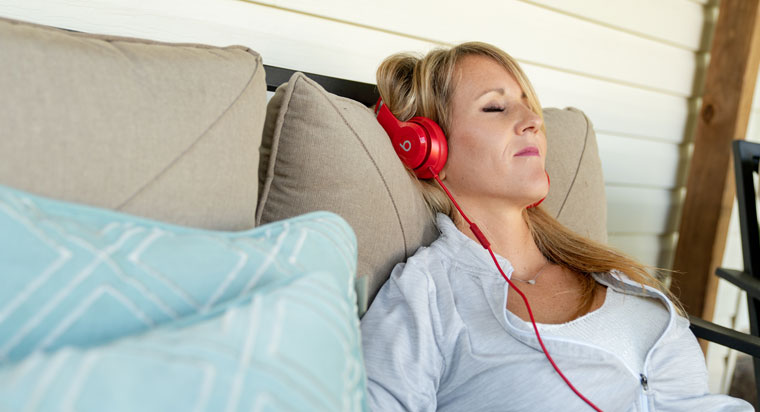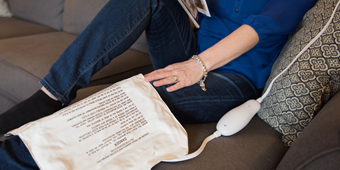De-Stress For a Good Night’s Rest

Answer a few questions and we'll provide you with a list of primary care providers that best fit your needs.
How do you keep a bad day from becoming a bad night?
You probably agree that getting a good night’s sleep is important to help you perform at your best and to enjoy life. But often the negative events of your day can rob you of quality sleep.
At least one study has found that people subjected to rude or negative behavior at work were more likely to have symptoms of insomnia, including difficulty getting to sleep and waking up multiple times during the night.
The same study found that people who were able to come home and do something relaxing after work – for example, take a walk, listen to music, or practice yoga – slept better that night.
You’ve probably had the experience of replaying in your head a negative comment from a boss or co-worker – or even a criticism from a friend or family member. It can be difficult to let go of these harsh words and stressors.
The same study found that people who were able to come home and do something relaxing after work – for example, take a walk, listen to music, or practice yoga – slept better that night.
No matter what you choose to do, a pleasurable activity can help you release the worries of the day. It could be reading a book, watching a movie, or playing a video game. Whatever helps you turn off the tape in your head will ultimately help you sleep better. And a good night of sleep will recharge and refresh you for the next day.
The National Sleep Foundation offers these tips for winding down our brains so we can sleep better:
- Turn off technology. The blue light from our electronic devices sends signals to keep our brains alert. To relax your brain, experts recommend at least an hour before bedtime setting aside your phone and computer – which can keep you tethered to your job.
- Exercise. It doesn’t have to be strenuous or too close to bedtime, but a walk, run, Pilates class, or leisurely swim can help clear your mind.
- Take a short nap. Whether you have time during the day, or for 20 minutes when you come home, a brief rest can help you recharge and have a more enjoyable evening. Keeping the nap short will ensure that you can still get to sleep that night.
- Practice mindfulness. Don’t underestimate the power of silence and stillness. A meditation or breathing exercise can help clear scattered thoughts from your head and relax you in the present moment.
Overall, better sleep will mean better health and a greater enjoyment of life.
Answer a few questions and we'll provide you with a list of primary care providers that best fit your needs.
Sources: American Psychological Association; 1MD; National Sleep Foundation




